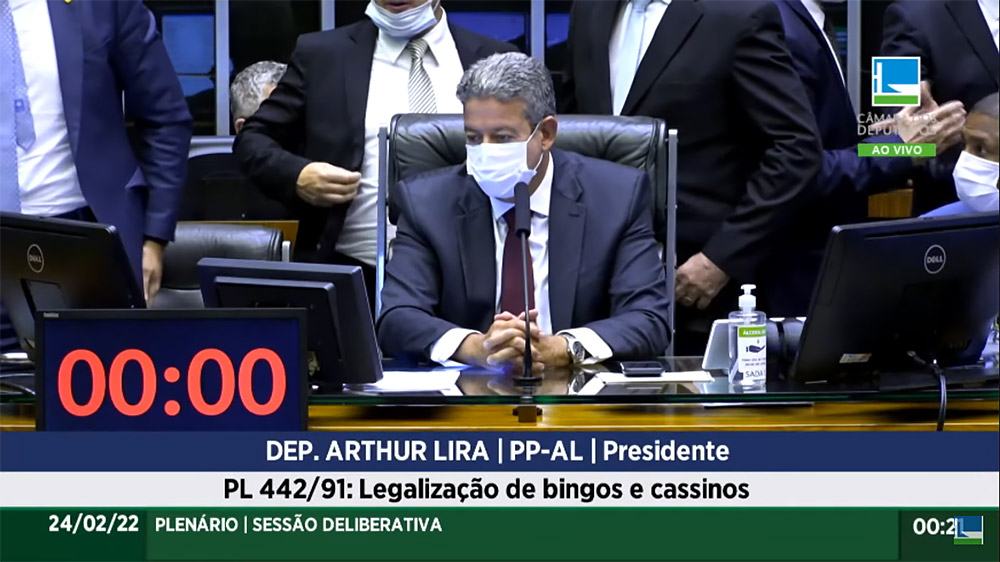Brazil’s House full floor on Wednesday night voted in favor of a bill that legalizes gambling, including the operation of casinos, bingos and the legalization of the “jogo do bicho.“
Bill 442/91 was approved by 246 votes in favor and 202 against, with 2 abstentions. Some proposed key points will be further discussed on Thursday to address potential changes, and the text will head to the Senate, which would debate on it in March. The upper chamber could introduce changes as well, which would take the bill back to the House for consideration.
The bill was first drafted by Deputy Felipe Carreras. President of the lower house Arthur Lira included the bill in this week’s Brazilian virtual plenary agenda. Just ahead of the results, Lira noted that the legislation is a “controversial issue” that needs to be addressed. Other lawmakers supporting the bill argued that gambling in Brazil is already a reality, and that the state just needs to ensure it is winning from it and that there are safety measures in place for players.
On Wednesday, Carreras discussed with the leaders of the legislative benches to analyze the 37 amendments that the project received. One of the changes was the decision to remove sports betting (quota fixa) from the bill since the Ministry of Economy is already in the final stages of a regulation covered by law 13.756 of 2018.
Another amendment allows turf entities to run bingo games and video-bingo. The market will be regulated and supervised by a regulatory body under the scope of the Ministry of Economy, to be defined in its own law.
Carreras’s opinion on the gambling project provides for a contribution of 17% on the gross revenue resulting from the activity, the creation of an inspection fee for issuing a license and an incidence of Income Tax of 20% on the net prizes equal to or greater than R$ 10,000.
“The goal is to prevent and protect the players,” Carreras explained. “The regulation will allow the state to collect more taxes through the exploitation of games and betting, and will ensure greater resources for the implementation and development of social public policies of the states and municipalities, reinforcing our fiscal federalism.”
A strong hurdle for this proposed legislation will be Brazil’s President Jair Bolsonaro, who has reaffirmed on multiple occasions his intention to veto any regulation that might come in, closely resembling Deputy Sóstenes Cavalcante’s efforts to kill the bill altogether. Bolsonaro on Wednesday texted lawmakers calling for them to reject the bill.
If the legislation moves forward and reaches the President’s desk, who would apply his veto power, it will be Congress who decides whether or not to annul this decision. In that scenario, the votes of the majority of lawmakers will again be necessary to reverse the presidential veto and only then will the project become law.
Under the proposed legislation, casino licenses will be prioritized based on investment size. No more than one license will be granted per federal entity, while the total country-wide licence number a casino can hold will be limited to five.
Furthermore, only one casino will be able to operate in a state with up to 15 million residents, two casinos for states between 15 to 25 million residents, and a total of three different license owners can establish operations in states with more than 25 million residents. Pará and Amazonas will have other exceptions.



